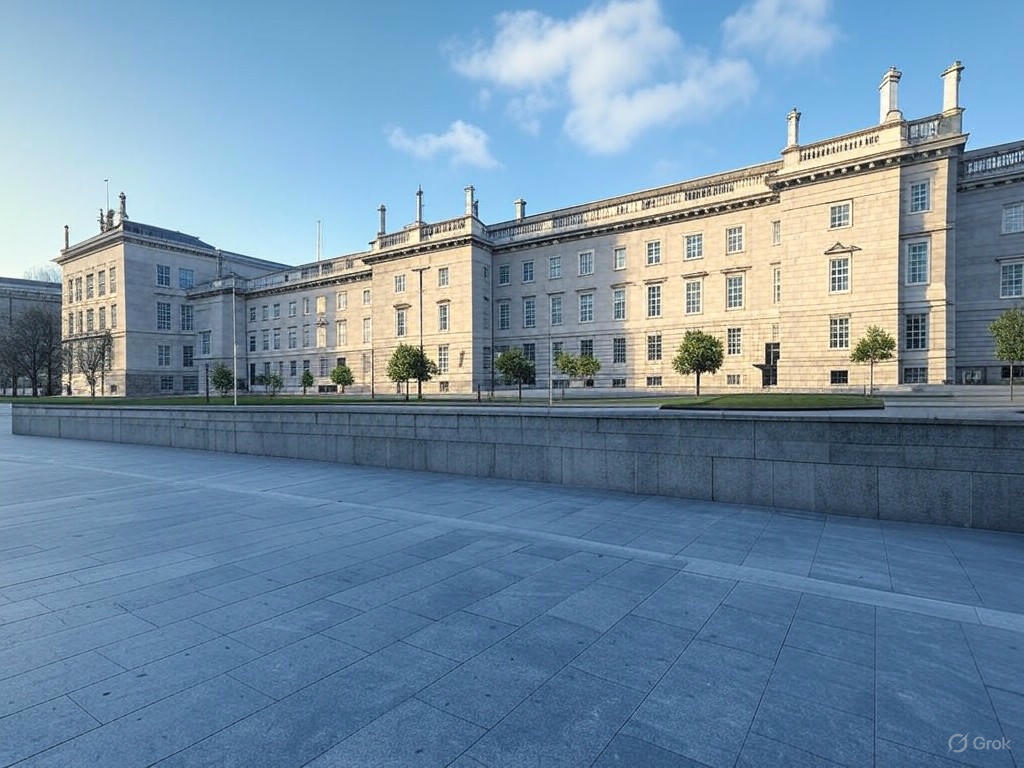Ireland Under U.S. Scrutiny: Currency Manipulation Watchlist Sparks Debate
In a move that has reignited discussions on global trade fairness, Ireland has once again landed on the United States’ watchlist for potential currency manipulation. This development, announced recently, marks the third time the country has faced such scrutiny, having previously been flagged in 2019 and 2021. With the incoming administration of President-elect Donald Trump emphasizing a hardline stance on perceived unfair economic practices, Ireland’s inclusion raises questions about the future of transatlantic trade relations and the broader implications for international markets.
The U.S. Treasury Department monitors countries for currency manipulation under strict criteria, including significant trade surpluses with the U.S., current account surpluses, and evidence of persistent intervention in foreign exchange markets. While being on the watchlist does not automatically imply wrongdoing, it signals that the U.S. is closely observing a country’s economic policies for practices that could unfairly impact American businesses. Ireland, a hub for multinational corporations due to its favorable tax environment, often finds itself in the spotlight for its economic strategies. The country’s trade surplus with the U.S., driven largely by tech and pharmaceutical exports, is a key factor in its recurring appearance on this list.
Critics argue that Ireland’s economic model, which heavily relies on attracting foreign investment, is being unfairly targeted. They point out that the nation’s policies are aligned with European Union regulations and do not constitute deliberate currency devaluation. Irish officials have expressed concern over the designation, emphasizing that their economy operates within globally accepted norms. On the other hand, U.S. policymakers, particularly under Trump’s influence, are pushing for a tougher approach to ensure a level playing field. Trump has repeatedly voiced his intent to address trade imbalances, and Ireland’s inclusion on the list could be a precursor to more aggressive measures, such as tariffs or trade negotiations, in the coming months.
The timing of this announcement adds another layer of complexity. As the global economy grapples with inflation, supply chain disruptions, and geopolitical tensions, any hint of trade friction between major economies can unsettle markets. Ireland, though small in size, plays an outsized role in global commerce due to its position as a gateway for U.S. companies into the European market. Any punitive actions or policy shifts stemming from this watchlist status could ripple through industries like technology and finance, where Ireland serves as a critical base.
Looking ahead, the situation underscores the delicate balance between national interests and international cooperation. Ireland will likely seek to engage in dialogue with U.S. authorities to clarify its economic practices and avoid escalation. Meanwhile, businesses operating in or through Ireland may need to brace for potential policy changes. As the Trump administration prepares to take office, the world watches to see whether this scrutiny of Ireland signals a broader crackdown on perceived trade inequities or remains a targeted warning. For now, the Emerald Isle finds itself at the center of a high-stakes economic conversation, with much hanging in the balance.


